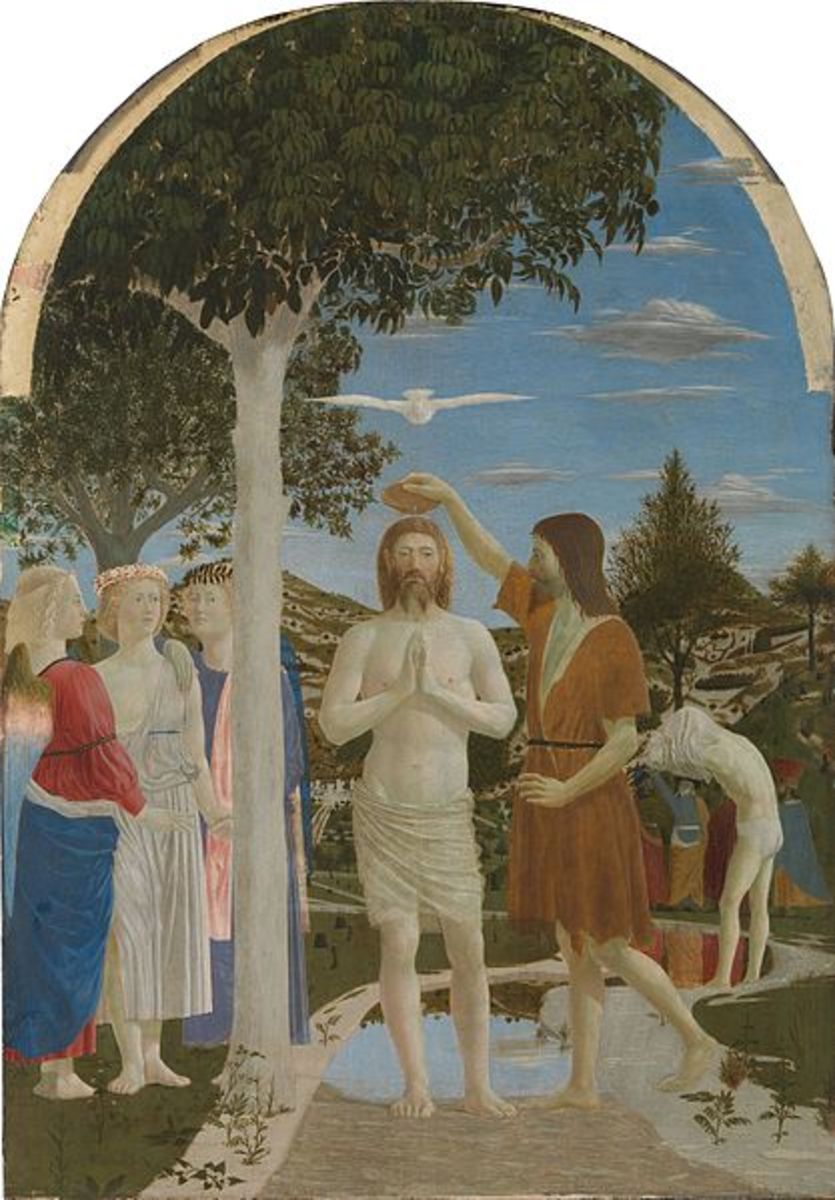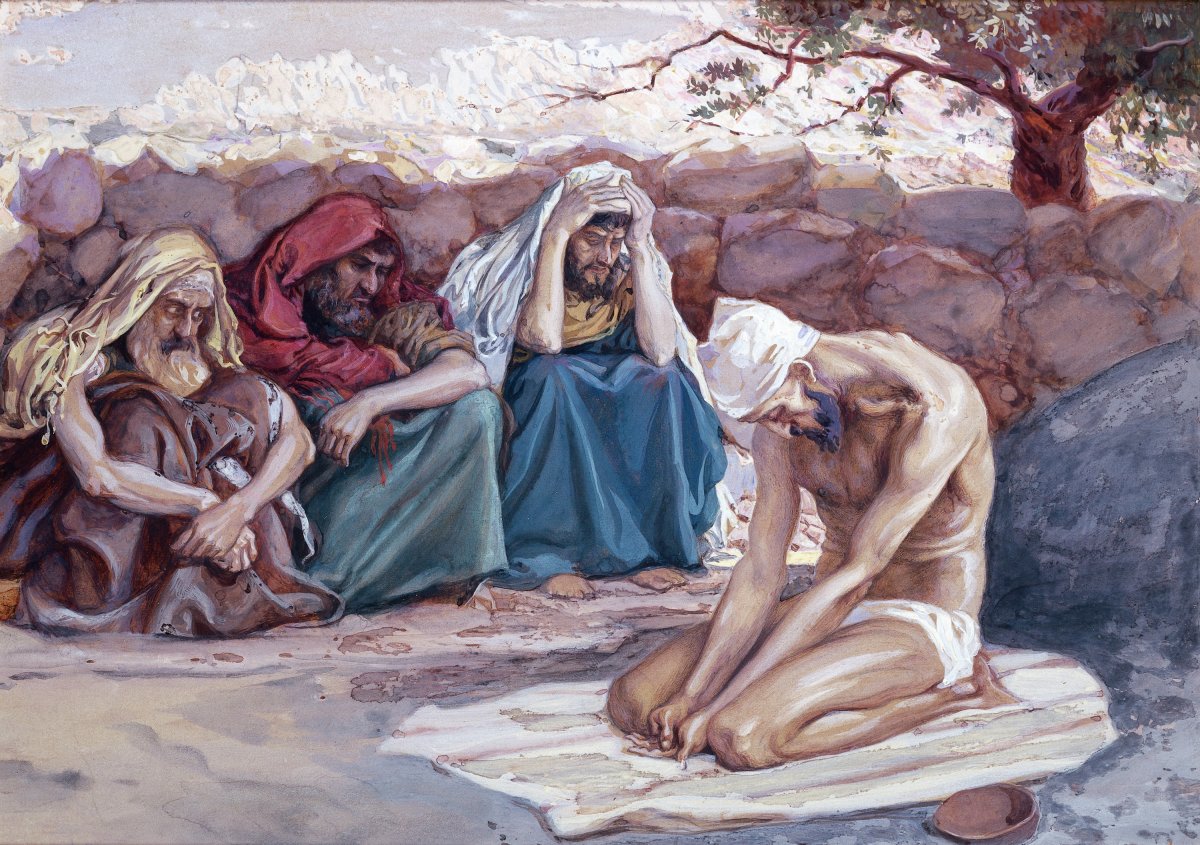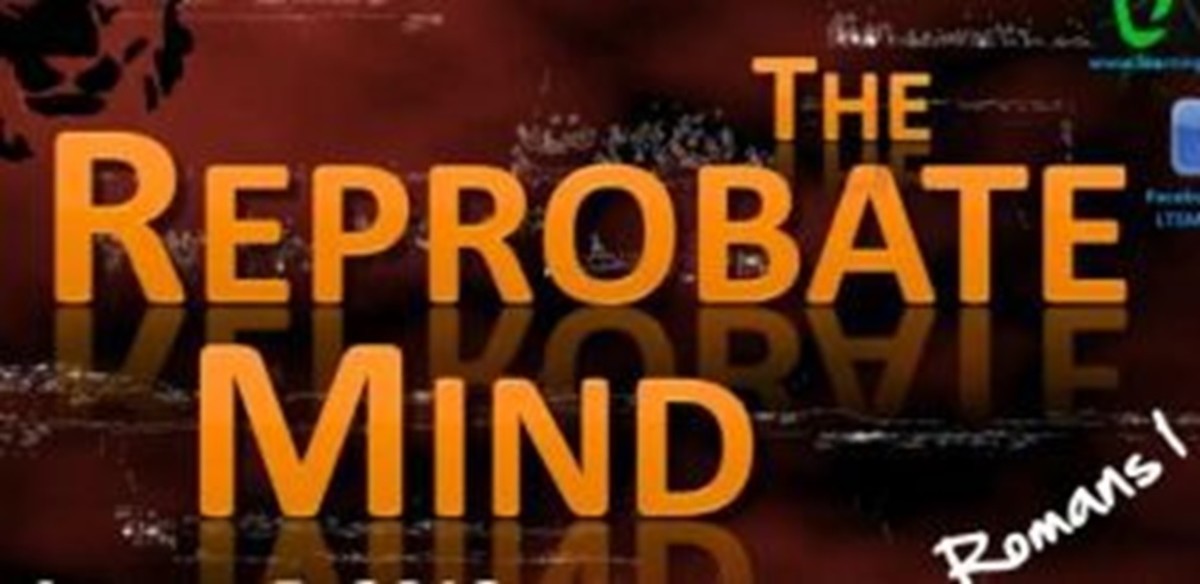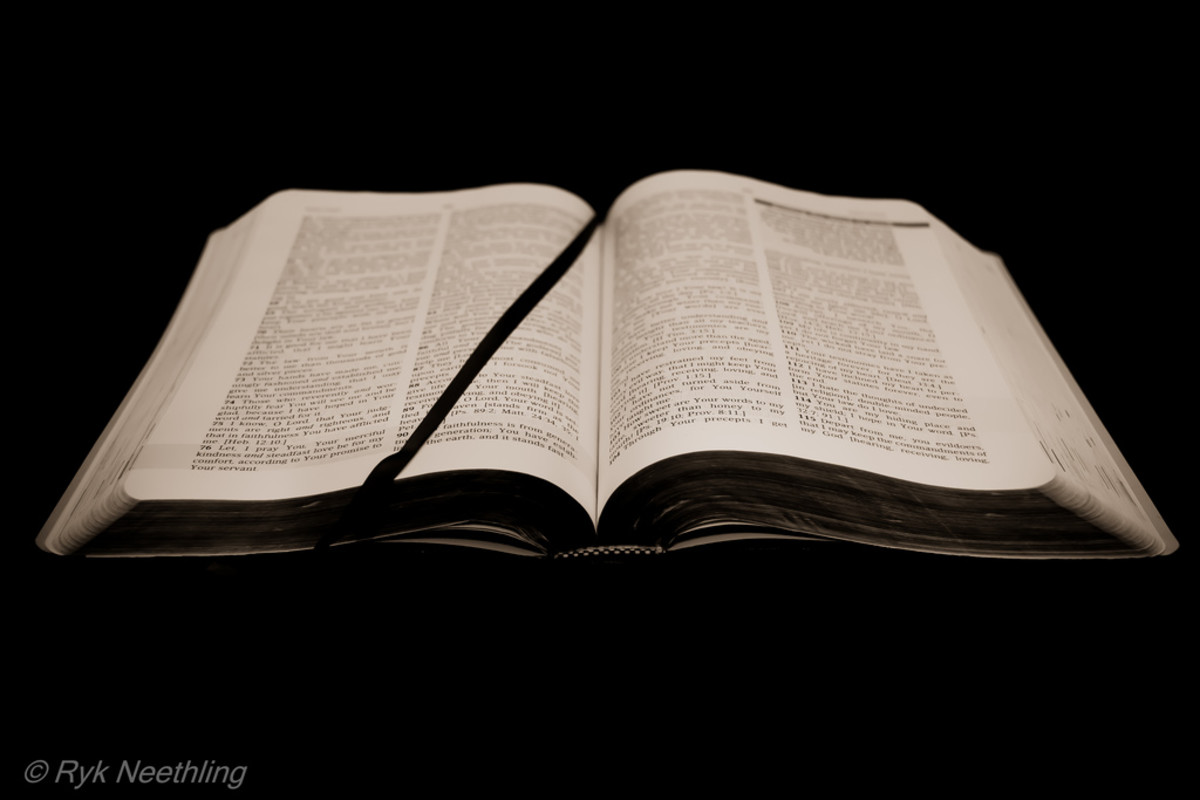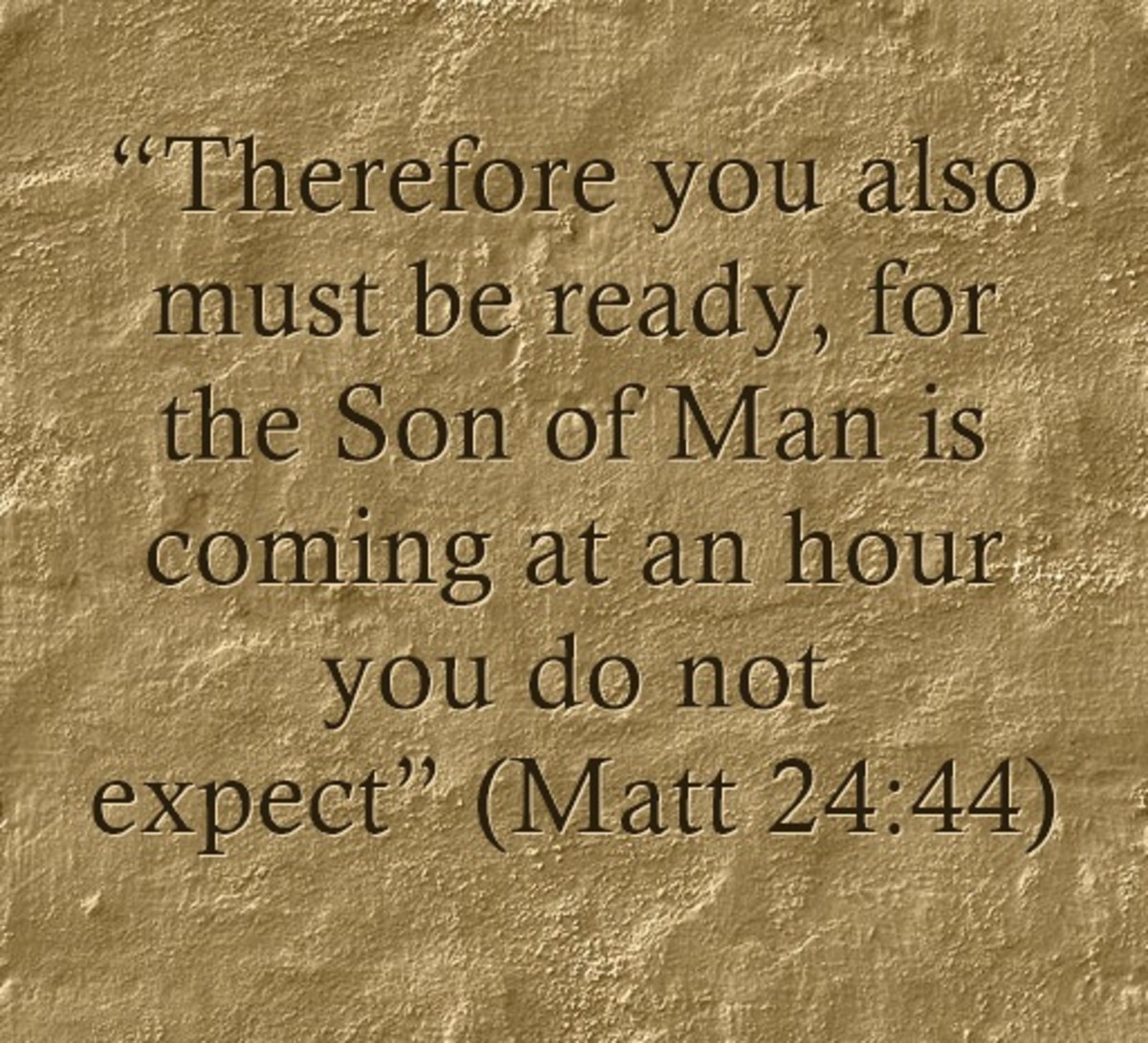Should You Believe in the Trinity? - 2 of 2
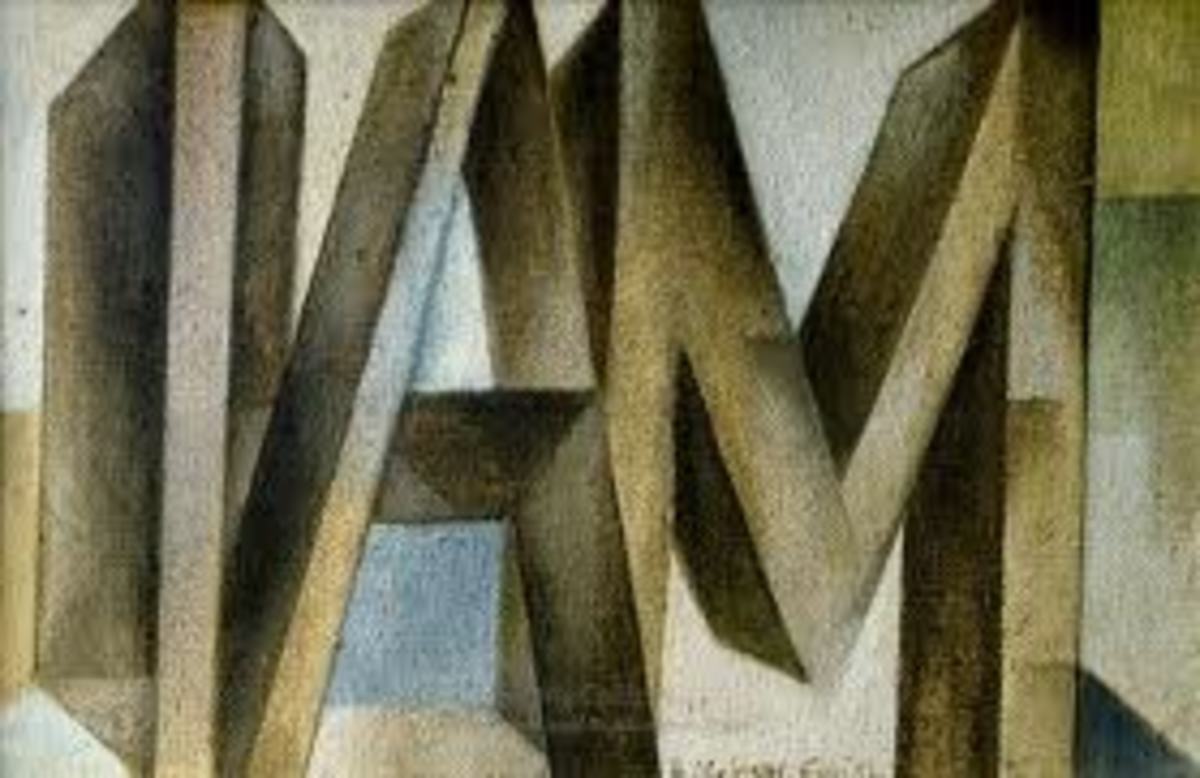
This is a continuation of Should You Believe in the Trinity? - 1 of 2, which covered the following:
- The First Commandment
- The Root of Protestant Churches = Catholicism
- Alterations to the Holy Bible
- The Trinity added to the Textus Receptus
- Interpreting “Us”, “Our” and “We” Passages
- The Person of God
- The 'Trinty' at the Baptism of Jesus
- Not My will, but Thy will be done
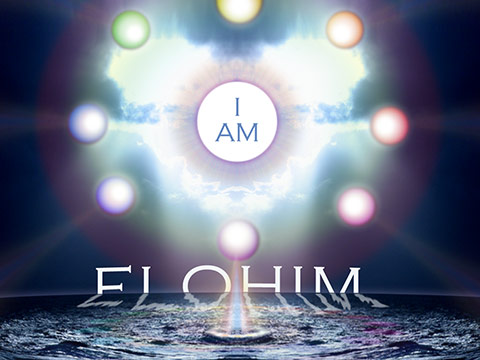
Why is Elohim Plural?
The Strongs Concordance gives us the definition of 'Elohim' as follows: “Short Definition: Angels. Long Definition: angels, exceeding, God, very great, mighty; Plural of elowahh; gods in the ordinary sense; but specifically used (in the plural thus, especially with the article) of the supreme God; occasionally applied by way of deference to magistrates [court]; and sometimes as a superlative -- angels, X exceeding, God (gods) (-dess, -ly), X (very) great, judges, X mighty.”
Based on the full definition of ‘Elohim’, we can see that it represents God Himself, His greatness and power, and includes angels and magistrates (court, judges). Did you also know that the children of God are included in ‘elohim’, based on the Word of God? Truly, “sons of the Most High” are called ‘elohim’ in both Psalm 82:6 and John 10:34.
The Jews knew God as 'Elohim' since Gen 1:1 was penned, yet never made Him into more than one God. It is notable to understand that back in those days, men of royalty would often refer to themselves in the plural sense, as shown in Ezra 4:11, 18; Dan 2:36. While ‘Elohim’ is translated ‘gods’ in the ordinary sense, it is specifically used with the singular article 'the' when referring to 'the LORD God'.
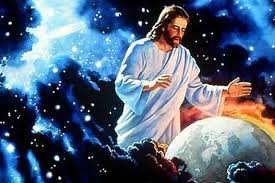
The Word was With God
John 1:1-2 tell us “In the beginning was the Word, and the Word was with God, and the Word was God. The same was in the beginning with God.” This verse, once again, is NOT translated according to the original Greek.
Look up the word “with” in the Greek. It is actually the word “pros”, meaning “to”. This would therefore, be translated “In the beginning was the Word and the Word was to elohim, [G: theon - object] and God [G: Theos - subject] was the Word. The same was in the beginning to elohim [G: theon - object].” We’ve already discussed the meaning of 'elohim', so this could indicate many things. The same word, “pros” is used in the following:
- In the creation, God spoke to His angels and heavenly hosts (elohim).
- The Word of God came to us [elohim/theon] (John 10:35)
- Prophetically, God in the flesh (the Son), after rising from the dead, returned to the Father God - Elohim (John 16:10).
- Prophetically, God (the Holy Spirit/Spirit of Christ) returned to us (elohim) on the Day of Pentecost (John 14:18; Acts 2).
Let’s now look at John 17:5 for a moment. Jesus was praying in the Garden of Gethsemane, the night He was betrayed: “And now, O Father, glorify Thou Me with Thine own self with the glory which I had with Thee before the world was.” To understand what He’s praying more fully, we need to begin with verse 1, “Father, the time has come. Glorify your Son, that your Son may glorify You.” What does He mean about “the glory which I had with Thee before the world was”? He did not exist as the “Son” or the “Lamb” at that time, but surely God fore-ordained how He would become the Savior of the world in Rev 13:8 “And all that dwell upon the earth shall worship him [the Antichrist], whose names are not written in the book of life of the Lamb slain from the foundation of the world.” We know the Lamb was not slain at the foundation of the world, so Rev 13:8 was prophetic and Jesus’ prayer, subsequent arrest, crucifixion and resurrection was the fulfillment of that prophecy in John 17:5.
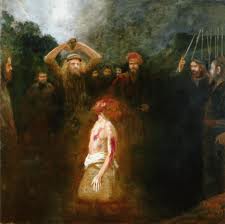
Stephen saw God and the Son at His right hand
Acts 7:55 states, “But he [Stephen], being full of the Holy Ghost, looked up stedfastly into heaven, and saw the glory of God, and Jesus standing on the right hand of God.”
Does this say Stephen saw God as a ‘person’ next to Jesus as a ‘person’? No. It specifically states he saw “the glory of God” (ref Ez 1:28) and “Jesus standing on the right hand of God”.
What is glory? - “substance, splendor, essence”; for God is invisible (Rom 1:20; Col 1:15; 1 Tim 1:17; Heb 11:27). 2 Cor 4:4-6 states, "in whose case the god of this world [Satan] has blinded the minds of the unbelieving so that they might not see the light of the gospel of the glory of Christ, who is the image of God. For we do not preach ourselves but Christ Jesus as Lord [Greek Kurios/Hebrew Yehovah], and ourselves as your bond-servants for Jesus' sake. For God, who said, 'Light shall shine out of darkness,' is the One who has shone in our hearts to give the Light of the knowledge of the glory of God in the face of Christ."
Speaking of glory, let's now go to 1 Cor 11:3, which states, "the head of every man is Christ; and the head of the woman [is] the man; and the head of Christ [is] God." It is imperative that you read the very first verse in this chapter to understand: "Follow my example, as I follow the example of Christ." As you know, Paul was an Apostle and church-planter (a type of 'head' of the 'Church'). Consider what Paul 'saw' when He met Jesus on the road to Damascus! "and suddenly there shined round about him a light from heaven...And he said, Who art thou, Lord? And the Lord said, I am Jesus..." Yes, God is invisible.
The rest of the chapter gives us the spiritual message, specifically talking about the 'covering' (a symbol of salvation), as relates to the marriage relationship. The wife is 'covered' by her husband. However, vs 7 states the husband is not to cover his head, since he is the image and glory of God. We can align this passage to Eph 5 and the mystery contained therein. Now, you can take this or leave it, but according to the interlinear translation of 1 Cor 11:3, it states, "the head of every man [andros - man] is the annointed [Christos]; and the head of the woman [gynaikos - woman] [is] the man [aner - husband]; and the head of the annointed [christou] is God."
As Christ is the brightness of [His] glory, and the express image of His person (Heb 1:3), 1 Cor 11:7 states the man [husband] is the “glory of God” and woman [wife] is the “glory of man”. If you read a like passage in Eph 5:23, it states, "This mystery is great; but I am speaking with reference to Christ and the Church.". God is the Husband to Israel (Jer 31:32); Christ is the Husband of the Bride, who is the Church (Eph 5:32). Are these two separate Gods with two separate Brides? No. Since the Church is grafted into Israel, and natural-born Israel is not necessarily part of the Church, the Bride consists of all believers, who are the true Israel of God (Romans 11).
The term 'right hand' simply means 'power' (Ex 16:15; Ps 89:13; Heb 1:3 & 8). God doesn’t have a literal right hand or right side. Again, God is invisible. Are you thinking to challenge John 1:18? Why don’t we…here we go again ~~~
The NIV states, “No one has ever seen God, but God the One and Only, who is at the Father's side, has made Him known.” This is incorrect!
Truly, the KJV is correct. “No man hath seen God at any time; the only begotten Son, which is in the bosom of the Father, He hath declared [Him].” When was the Son begotten (born)? He was born once, not twice.
Jesus Christ is God’s visible image (Col 1:15). God told Moses in Ex 33:20 that he could NOT look at the face of God and live. The only way to ‘see God’ (even in Eden) and relate to Him (even in heaven) is in the ‘person’ of Jesus Christ. This is why Jesus told Philip in John 14:9, “Have I been so long with you, and yet you have not come to know Me, Philip? He who has seen Me has seen the Father; how can you say, 'Show us the Father’?” Truly, In Christ dwelt the fullness of the Deity bodily (Col 2:9). God in Christ and Christ is God.

Delivering up the Kingdom and Subjection of the Son
1 Cor 15:24-28 takes some deeper understanding: “Then [cometh] the end, when He shall have delivered up the kingdom to God, even [kai] the Father; when He shall have put down all rule and all authority and power. For He must reign, till He hath put all enemies under his feet. The last enemy [that] shall be destroyed [is] death. For He hath put all things under his feet. But when He saith, all things are put under [him, it is] manifest that He is excepted, which did put all things under him. And when all things shall be subdued unto him, then shall the Son also himself be subject unto Him that put all things under him, that God may be all in all.” Compare this to Col 3:11 “Where there is neither Greek nor Jew, circumcision nor uncircumcision, Barbarian, Scythian, bond [nor] free: but Christ [is] all, and in all.”
Since the KJV does not use capitalization; I have capitalized the word ‘He’ when it refers to Jesus and not capitalized the word ‘he’ when it refers to mankind. Did you notice some portions of this verse are past tense and some future? There is also a mystery in the word ‘Son’ (capitalization signifies Divinity), which I will cover in a moment.
When was all rule and all authority and power put down? In Mat 28:18, after His resurrection, “Jesus came and spake unto them, saying, All power is given unto Me in heaven and in earth.” Eph 1:22 states, "And He put all things in subjection under his feet, and gave Him as head over all things to the church." And Peter wrote of Jesus in 1 Pet 3:22, “Who is gone into heaven, and is on the right hand of God; angels and authorities and powers being made subject unto Him.” Does the reign of Christ EVER come to an end? No. The Bible states in the Old and New Testaments that His reign and kingdom will NEVER end.
The King of kings (the only Sovereign, Jesus Christ) must reign by intercession as Mediator for mankind as long as we are yet subjected to Satan’s wiles. It is the Lord Jesus who gives us the power to overcome the Adversary. Consider the 70 disciples in Luke 10:17 “And the seventy returned again with joy, saying, Lord, even the devils are subject unto us through Thy name.” One day, we will no longer need a Mediator, after the last enemy of our physical death is destroyed. After our resurrection, the Lamb (Mediator) will have delivered up the kingdom to theo [the God], even/and [kai] the Father, “I AM”.
If you look up passages such as Gen 1:28, Dan 7:13-14 (vision) and vs 17, 22, 27-28 (interpretation), Ps 8:4-9 and Heb 2:5-9 you will see that God intends to restore the world to the way it was in the beginning. God and man, with mankind ruling over the earth ~ even the angels, under His Lordship (Gen 2; 1 Cor 6:3).
Now, who is the Son that is finally and fully subjected to God? “Son” is the Greek word “huios”. Compare this to the words of JESUS in Rev 21:7 “He that overcometh shall inherit all things; and I will be his God, and he shall be My son [huios].” This is speaking of the resurrected, divine children of God!
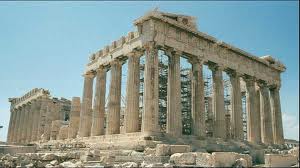
Other Pillars of the ‘Trinity’
My Father is Greater than I
Remember when Jesus said in John 14:28, “My Father is greater than I”? God, the Holy Spirit, is omnipresent. His Spirit indwelt John the Baptist from the womb (Luke 1:15), yet John testified he was not the Christ (John 1:20). Like us, John had an earthly father. The Holy Spirit is the Father of the Son (Mat 1:18). By His Spirit, God emptied Himself to take on the flesh of the Son (Phil 2:7) by being “made [formed in His mother’s womb] a little lower than ‘elohim’”, which is translated ‘God’ in Ps 8:5 and ‘angels’ in Heb 2:9. Jesus alone existed in the form (morphe) of God and in the form (schema) and likeness (homoioma) of man.
Why do you call Me good?
In Mark 10:18 "And Jesus said to him, 'Why do you call Me good? No one is good except God alone." This is a dead give-away to those who have 'ears to hear'. If there is ONLY ONE GOOD, the Bible declares Jesus Christ was holy, sinless, blameless, spotless, without blemish, perfect. Rom 3:23 declares that ALL HAVE SINNED, so none could be the sacrifice for the sin of mankind, but God alone.
The Son doesn’t know the Day nor the Hour
While the KJV translates Matthew 24:36 “But of that day and hour knoweth no [man], no, not the angels of heaven, but My Father only”, the Greek does not appear to include 'the Son'. In fact, the translation reads, "But about that the day and hour none knows not even those agents of those heavens if not the Father of Me only." The book of Matthew is the only gospel said to have been originally written in Hebrew. Was the translation from Hebrew into Greek altered? Based on what we covered in Part 1, it's very possible.
The more vital question is, "Did Jesus not know when He would return?" He actually revealed when He would return using this 'idiom'. Only a Jew would understand. Study about 'Rosh HaShana', also known as the 'Feast of Trumpets', and that unknown time-frame just before the new moon. No one could know this day until two witnesses observed the New Moon. Therefore, it was known as "the day that no one knows".
Jesus was born on Tishri 1 (the Feast of Trumpets); He was crucified on Passover/Feast of Unleavened Bread; He rose again on the Feast of First Fruits; the Day of Pentecost happened at the Feast of Weeks/Shavuot...do you see any significance? (1 Thes 5:4)
Scriptures regarding Jesus knowing all things: John 16:30; 21:17
Another Comforter
In John 14:16 Jesus told His disciples, “And I will pray the Father, and He shall give you another Comforter, that He may abide with you for ever.” Once again, we must look up the Greek word for ‘another’, which is ‘allos’, meaning ‘more of the same'. On the other hand, Jesus, after His resurrection, appeared in ‘another form’ to two of His disciples in Mark 16:12. The Greek word used for ‘another’ here is ‘heteros’, meaning ‘different’, while ‘form’ is the Greek word ‘morphe’. Did He change the appearance of His resurrected body, and is this not consistent with God?
Jesus calls the Father 'My God'
Jesus refered to the Father as 'My God' when He was the Son of Man, in the flesh (Mat 27:46; John 20:17). In the first three chapters of Revelation, when Jesus gave John the words to write to the churches, He referred to God as 'My God'. There is only one (singular) way to the Father, and that is through faith in the Son, when it comes to the Church (John 14:6). In context, Jesus is yet the Mediator, and will be until the final enemy of man’s physical death is destroyed. Look at Rev 3:5. Now compare this to Mat 10:32 and Luke 12:8.

Jesus and the Holy Spirit make intercession for us
We just discussed the purpose for 'Mediation'. The thing we need to realize is God is Spirit, the Holy Spirit. The Spirit of God and Spirit of Christ are one in the same. Look at Rom 8:9: “But ye are not in the flesh, but in the Spirit, if so be that the Spirit of God dwell in you. Now if any man have not the Spirit of Christ, he is none of His.”
How does the Spirit of God/Spirit of Christ intercede for us? In us and through us, for we are a kingdom of priests (Rom 8:26-27; Rev 5:10). Remember, "the LORD is that Spirit (2 Cor 3:17) and He intercedes for us with groanings that cannot be uttered; this comes from within us when we pray, for we don’t know how to pray as we ought (Rom 8:26).
Let’s now take a look at what Jesus said to His disciples, pre-crucifixion, in John 16:26-27 “In that day you will ask in My name. I am NOT saying that I will ask the Father on your behalf. No, the Father Himself loves you because you have loved Me and have believed that I came from God.” This tells us clearly that there is NO Mediation of ‘the Son’ as a separate person because He is the Living God Himself ~ He is in us and we are in Him. He, the Living God, intercedes between sinful flesh and holiness, until our flesh dies and we are resurrected as immortal, holy children of God.
God and the Lamb in Revelation
Remember back in 1 Cor 15:24 we saw the kingdom having been delivered up to ‘God even [kai] the Father’? In the same way, the phrase ‘God and the Lamb’ is used throughout Revelation. The Greek word used for ‘and’ [kai] is the same used in 1 Cor 15:24 for ‘even’ [kai]. ‘God and the Lamb’ is equal to the usage of ‘God and Savior’ shown in 54 other passages. God is also called ‘God and Redeemer’ (Isa 44:6; 48:17; Ps 78:35; Acts 7:35). The prophets not only called the LORD God ‘God and Savior’ (Is 45:15; Mic 7:7; 1 Chr 16:35, Ps 65:5; Hab 3:18), the Apostles referred to Jesus as 'God and Savior' (1 Tim 1:1; Tit 2:13; 2 Pet 1:1).
Note who calls Himself the ‘Alpha and Omega’ and the ‘First and the Last’ in Is 44:6 (Rev 1:8, 11; 21:6 and 22:13). In Is 44:6, "Thus says the LORD, the King of Israel and his Redeemer, the LORD of hosts" should not separate the King of Israel from 'his Redeemer', as Jesus is both King and Redeemer of Israel. The word 'his' is not capitalized in any verson and is rightly referring to Israel (Ex 4:22). Note who is in the midst of the THRONE in Rev 7:17? Jesus.
Let's take a moment to look at "God and the Lamb" in Rev 21:22. It is translated (not interpreted - there is a difference) as "I saw no temple in it, for the Lord God the Almighty and the Lamb are its temple." The Greek word translated 'are' is 'estin', which is actually the word 'IS' [singular]. You can view this in the interlinear link here (from biblos.com):
Let's go on to Rev 22:3-4 "There will no longer be any curse; and the throne [singular] of God and of the Lamb will be in it, and His (Whose? God's or the Lamb's?) bond-servants will serve Him (Who? God or the Lamb?); they will see His face (Whose face?), and His name (Whose name?) will be on their foreheads." There is only One Throne, One God, who is both God and the Lamb. He is not two or three separate/distinct 'persons'. God is invisible Spirit, visible in the Person of Jesus Christ.
The Holy Spirit and Jesus come out from the Father
Finally, we should address the fact that the Holy Spirit comes out (proceeds) from the Father (John 14:26; 15:26); likewise, Jesus comes out (proceeds) from the Father (John 6:46; 8:42; 16:28). Okay. Let me give you a picture of what this means. Imagine God is water (symbolic of the Holy Spirit). Imagine Christ Jesus is the picher to hold the water. When the water is poured into the picher, it can be poured from the picher into the sanctified (holy) serving glasses (believers).
A perfect example of this is found both in John 20:22 "And when He had said this, He breathed on them and said to them, 'Receive the Holy Spirit'" and Acts 2:17 ( ref: Joel 2:28) "And in the last days it shall be, God declares, that I will pour out My Spirit on all flesh".
This is how God made it clear to me, and I hope it helps open your mind to understand the Scriptures (Luke 24:45). God bless you from His heart to mine to yours.
- Share the GOSPEL - Oh Taste and See!
Rain. Imagine its raining all over the world. The rain gives life to all things. It is refreshing! It washes clean. It satisfies thirst. Imagine God is the rain. One day, God made two glasses and they...
Isa 9:6/John 14:9; Rom 1:3; 2 Cor 3:17...Listen....Listen...
- God: Let Us Make Man in Our Image?
There are differing views being taught in the Christian world today about Genesis 1:26-27, which states Then God said, Let Us make man in Our image, according to Our likeness; and let them rule over the...
- 1 Corinthians 15:28 - Jesus Subject to the Father?
Ive spent tons of hours reading and studying scripture and anything and everything I could find on the internet, commentaries, etc. to help me understand and reconcile the subjection of the Son to the...
- Let Me Tell You WHO GOD IS!
Who is GOD? WOW. What a concept to try to wrap our human brains around! Ive read all kinds of interpretations of the trinity and some of the scriptures cause confusion as to exactly how we are to interpret the entity of God Himself.


